HERCULES Center Retreat 2015
A couple weeks ago the HERCULES Center investigators, community stakeholder advisory board members, and trainees gathered for the annual center retreat. Every year the center retreat serves to provide opportunities for networking and collaborative discussions across our multidisciplinary investigators. Three other key elements were included in this year’s discussion— community concerns, data science needs and integration across the new environmental health centers at Emory.
Community Conversations
The HERCULES community stakeholder advisory board (SAB) is an incredible asset to the center. With representatives from across the Atlanta community, the SAB gathers regularly to discuss and determine the current and upcoming activities of the community outreach core. Last year, the SAB decided to focus their efforts on the Atlanta Community Forum, resulting in an incredible all-day event of hands-on workshop discussions, trainings and identification of personal action steps for each of the over sixty community members in attendance.
The morning session of the retreat was dedicated to the community stakeholders to hear their input and vision for the next five years of HERCULES. Stakeholders took turns providing their thoughtful feedback to the group. Although many topics were covered, a few themes emerged around promoting and increasing effective risk communication, engaging and incorporating the community into research activities, and increasing access to environmental health research tools.
 |
 |
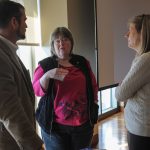 |
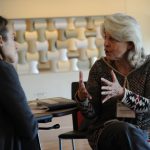 |
Communication across community members and research scientists are key to the effectiveness of HERCULES and environmental health science overall. Dedicated discussions are scheduled for the coming months to ensure SAB concerns are continually integrated across overall center activities.
The Future of Data Science
With the increased ability to gather and store high-dimensional data, “Big Data” has emerged as a key challenge across disciplines. As a research center focused on the exposome, we recognize this as a major challenge for investigators that will only continue to grow. Bringing in experts across biostatistics, bioinformatics, and systems biology, investigators had an opportunity to hear about the range of capabilities at Emory and later engage in a panel discussion about the future of data science. Through the data science session and follow-up surveys, HERCULES aims to identify and fill gaps between research needs and services.
New Environmental Health Centers at Emory
Two environmental health centers focused on children’s health were awarded to Emory over the past few months. Investigators from each of these centers were invited to participate in lunch presentations and discussions. A Children’s Health Exposure Analysis Resource (CHEAR) laboratory hub will provide laboratory services to external investigators interested in incorporating environmental exposure analyses into children’s health studies. This resource has a similar structure to HERCULES, offering core services across targeted analytical chemistry, untargeted metabolomics and measures of the biological response. HERCULES Center Director, Dr. Gary Miller, will direct the lab hub and Dr. Lance Waller will serve as Deputy Director.
 |
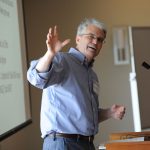 |
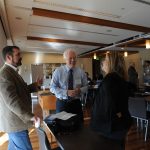 |
 |
Co-led by Dr. Barry Ryan and Dr. Linda McCauley, the Center for Children’s Health, the Environment, the Microbiome and Metabolomics (C-CHEM2) aims to investigate the interrelationships of components of the prenatal and postnatal environment of the fetus and child and their impacts upon birth outcome, the infant microbiome and neurodevelopment. After hearing about these new centers, investigators from the three centers along with HERCULES community stakeholders discussed future opportunities and collaborations.
HERCULES is truly a collaborative labor of our investigators and community stakeholders. As the center prepares for the year ahead, opportunities abound for new approaches to advance environmental health in our research, our community and beyond.
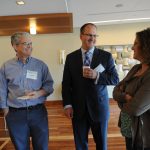 |
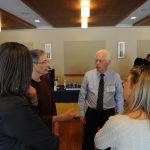 |
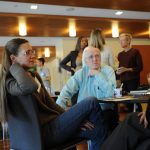 |
 |